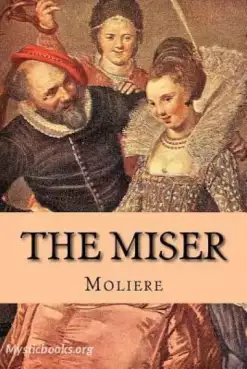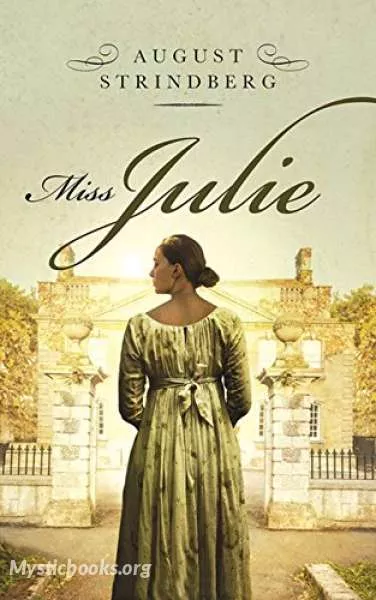
Countess Julie
'Countess Julie' Summary
The play opens with Jean walking on the stage, the set being the kitchen of the manor. He drops the Count's boots off to the side but still within view of the audience; his clothing shows that he is a valet. Jean talks to Christine about Miss Julie's peculiar behavior. He considers her mad since she went to the barn dance, danced with the gamekeeper, and tried to waltz with Jean, a mere servant of the Count. Christine delves into the background of Miss Julie, stating how, unable to face her family after the humiliation of breaking her engagement, she stayed behind to mingle with the servants at the dance instead of going with her father to the Midsummer's Eve celebrations. Miss Julie got rid of her fiancé seemingly because he refused her demand that he jump over a riding whip she was holding. The incident, apparently witnessed by Jean, was similar to training a dog to jump through a hoop.
Jean takes out a bottle of fine wine with a "yellow seal" and reveals, by the way he flirts with her, that he and Christine are engaged. Noticing a stench, Jean asks what Christine is cooking so late on Midsummer's Eve. The pungent mixture turns out to be an abortifacient for Miss Julie's dog, which was impregnated by the gatekeeper's mongrel. Jean calls Miss Julie "too stuck-up in some ways and not proud enough in others," traits apparently inherited from her mother. Despite her character flaws, Jean finds Miss Julie beautiful or perhaps simply a stepping stone to achieve his lifelong goal of owning an inn. When Miss Julie enters and asks Christine if the "meal" has finished cooking, Jean instantly shapes up, becoming charming and polite. Jokingly, he asks if the women are gossiping about secrets or making a witch's broth for seeing Miss Julie's future suitor.
After more niceties, Miss Julie invites Jean once more to dance the waltz, at which point he hesitates, pointing out that he already promised Christine a dance and that the gossip generated by such an act would be savage. Almost offended by this response, she justifies her request by pulling rank: she is the lady of the house and must have the best dancer as her partner. Then, insisting that rank does not matter, she convinces Jean to waltz with her. When they return, Miss Julie recounts a dream of climbing up a pillar and being unable to get down. Jean responds with a story of creeping into her walled garden as a child–he sees it as "the Garden of Eden, guarded by angry angels with flaming swords"–and gazing at her longingly from under a pile of stinking weeds. He says he was so distraught with this unrequitable love, after seeing her at a Sunday church service, that he tried to die beautifully and pleasantly by sleeping in a bin of oats strewn with elderflowers, as sleeping under an elder tree was thought to be dangerous.
At this point Jean and Miss Julie notice some servants heading up to the house, singing a song that mocks the pair of them. They hide in Jean's room. Although Jean swears he won't take advantage of her there, when they emerge later it becomes clear that the two have had sex. Now they are forced to figure out how to deal with it, as Jean theorizes that they can no longer live in the same household–he feels they will be tempted to continue their relationship until they are caught. Now he confesses that he was only pretending when he said he had tried to commit suicide out of love of her. Furiously, Miss Julie tells him of how her mother raised her to be submissive to no man. They then decide to run away together to start a hotel, with Jean running it and Miss Julie providing the capital. Miss Julie agrees and steals some of her father's money, but angers Jean when she insists on bringing her little bird along–she insists that it is the only creature that loves her, after her dog Diana was "unfaithful" to her. When Miss Julie insists that she would rather kill the bird than see it in the hands of strangers, Jean cuts off its head.
In the midst of this confusion, Christine comes downstairs, ready to go to church. She is shocked by Jean and Miss Julie's planning and unmoved when Miss Julie asks her to come along with them as head of the kitchen of the hotel. Christine explains to Miss Julie about God and forgiveness and heads off for church, telling them as she leaves that she will tell the stablemasters not to let them take out any horses so that they cannot run off. Shortly after, they receive word that Miss Julie's father, the Count, has returned. At this, both lose courage and find themselves unable to go through with their plans. Miss Julie realizes that she has nothing to her name, as her thoughts and emotions were taught to her by her mother and her father. She asks Jean if he knows of any way out for her. He takes a shaving razor and hands it to her. The play ends as she walks through the door with the razor, presumably to commit suicide.
Book Details
Language
EnglishOriginal Language
SwedishPublished In
1889Authors
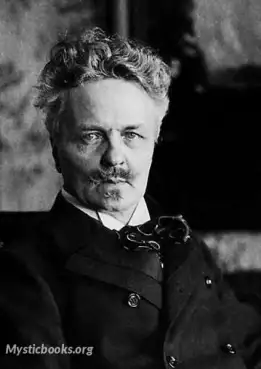
August Strindberg
Sweden
Johan August Strindberg was a Swedish playwright, novelist, poet, essayist and painter. A prolific writer who often drew directly on his personal experience, Strindberg's career spanned four decades,...
Books by August StrindbergDownload eBooks
Listen/Download Audiobook
- Select Speed
Related books

Shakespeare Monologues Collection vol. 09 by William Shakespeare
This is the ninth collection of monologues from Shakespeare’s plays. Containing 20 parts.
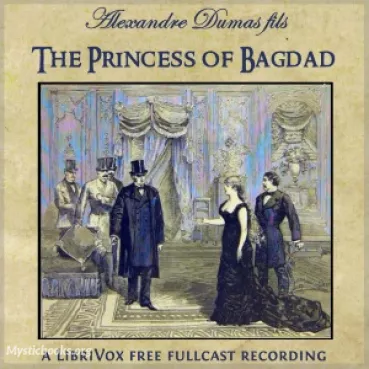
The Princess of Bagdad by Alexandre Dumas fils
Embark on a captivating adventure into the heart of the Arabian Nights with Alexandre Dumas fils's enthralling novel, "The Princess of Bagdad." Prepar...

Wessex Poems by Thomas Hardy
Wessex Poems and Other Verses (often referred to simply as Wessex Poems) is a collection of fifty-one poems set against the bleak and forbidding Dorse...

Tamburlaine the Great, Part 2 by Christopher Marlowe
Tamburlaine the Great is the name of a play in two parts by Christopher Marlowe. It is loosely based on the life of the Central Asian emperor, Timur '...

Lover's Vows by Elizabeth Inchbald
Lovers' Vows, a play by Elizabeth Inchbald arguably best known now for having been featured in Jane Austen's novel Mansfield Park (1814), is one of at...

The Cherry Orchard by Anton Chekhov
The Cherry Orchard is the last play by Russian playwright Anton Chekhov. Written in 1903, it was first published by Znaniye (Book Two, 1904), and came...

Story of a Stuffed Elephant by Laura Lee Hope
The Story of a Stuffed Elephant is... well, the story of a Stuffed Elephant and the little boy who owns him, and his sister, and all their adventures....
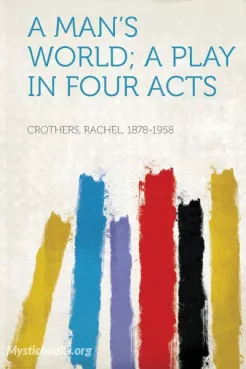
A Man's World by Rachel Crothers
In the heart of bohemian New York City, amidst the vibrant artistic circles of Greenwich Village, Frank Ware, an enigmatic writer, navigates the compl...
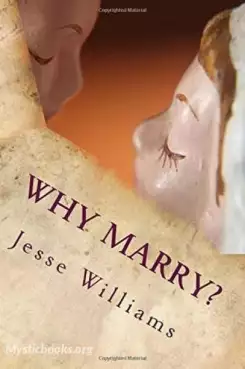
Why Marry? by Jesse Lynch Williams
Why Marry? is a 1917 play written by American playwright Jesse Lynch Williams. It won the first Pulitzer Prize for Drama in 1918.
Reviews for Countess Julie
No reviews posted or approved, yet...
